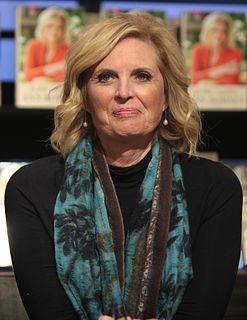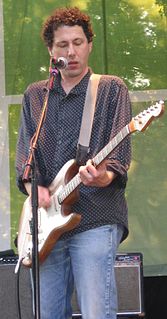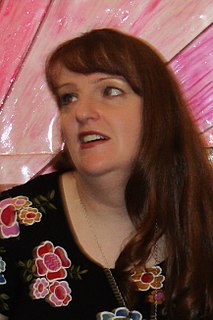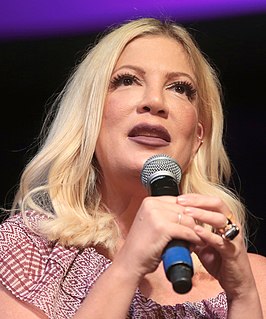A Quote by John Buffalo Mailer
I would say the only one person I know of who kind of combines the elements that my father brought to the table in terms of affecting the public discourse would be Oliver Stone. His combination of academic brilliance and real life experience and just understanding people I think is what makes him such a great storyteller, but also he cares. He is interested. He meets somebody and he listens to them. He has some questions. He wants to know what they're about. And as a result I think his worldview is much more complex and whole and most of the other.
Quote Topics
About
Academic
Affecting
Also
Brilliance
Brought
Cares
Combination
Complex
Discourse
Elements
Experience
Father
Great
Him
His
Interested
Just
Kind
Know
Life
Life Experience
Listens
Makes
Meets
More
Most
Much
Oliver
Only
Other
People
Person
Public
Public Discourse
Questions
Real
Real Life
Result
Say
Some
Somebody
Stone
Storyteller
Table
Terms
Them
Think
Understanding
Wants
Whole
Worldview
Would
Would Be
Related Quotes
I consider myself a logical person and, you know, a lot of people try to categorize me in one way or another. You know, there are some of the things that I say that probably would be considered very much non-conservative. But I don't think really conservative or liberal; I think: What makes sense? What's going to help the American people? What's going to give them what they need? Not only in health care but in terms of jobs, in terms of education, in terms of a whole host of issues.
I think you learn more about Donald Trump when you learn more about his wife Melania. She can say things, but it's more how much did you get to know her and believe the kind of person she is, that could be married successfully to him. So once you realize that there's something there, that there's substance and that she's got talents and abilities, you think "this is a very complex woman and not just a pretty face" and you know they have a pretty successful marriage and I think that speaks well of him.
I know Donald Trump quite well. We've never shared values, he and I. But I respected his ability to turn it around. So I respect somebody who can turn things around and be successful. I think the president's communication style is the most difficult thing because he actually does care, people who know him know he cares. But his style of communication, his combative approach, the elements of ego that are obviously there in all of us but seem to be more easy to see in the president sometimes than other people, get in the way of his capacity to lead, unfortunately.
But this man had set down with a hammer and chisel and carved out a stone water trough to last ten thousand years. Why was that? What was it that he had faith in? It wasn't that nothin' would change. Which is what you might think, I suppose. He had to know better'n that. I've thought about it a good deal. . . And I have to say that the only thing I can think is that there was some sort of promise in his heart. And I don't have no intentions of carvin' a stone water trough. But I would like to be able to make that kind of promise. I think that's what I would like most of all.
I sort of do what I say and say what I do which I'm happy with because it makes my life real easy. When I was younger, people would say that I was inspired by David Lynch, so I went and watched his stuff and I was surprised. I thought it was smart, with what I was trying to do lyrically. So I started watching some of his stuff. I've never seen his movies in [their] entirety, I'm more interested in him as a person and how he came to be successful taking an alternative route, sort of a subculture icon.
You know, I think my biggest concern [if Mitt is elected], obviously, would just be for his mental well-being. I have all the confidence in the world in his ability, in his decisiveness and his leadership skills, in his understanding of the economy, in his understanding of what's missing right now in the economy - you know, pieces that are missing to get this jump-started. So for me I think it would just be the emotional part of it.
I think the record-buying public know what they like, and when people are trying to pander to them, I think they know it. They want the genuine article, so if we try to sort of "dumb down" for the mass public, I think they're too smart for that, and would recognize us as fakes. It seems like the bands that do crossover do so really on their own terms, and they just find that their terms just kind of make a big dove-tail with the masses.
I want to help you," Oliver said. "Why?" Galen looked up at him. "Because of Petunia?" Oliver was relieved that the prince didn't seem to be skeptical about his conviction. He simply looked like he wanted to know, and so did Heinrich, when Oliver dared to look at the other prince. Oliver was very aware that Heinrich had known his father. Had known him better than Oliver had, in fact. "Because of her," Oliver said at last. "Even though I have only met her twice, really...I just..." "I risked my life to save Rose after only speaking with her twice," Galen said with a small smile.
My favorite show of my father Aaron Spelling is probably a show that was his favorite and that was a show called Family. He was the most proud of that show because, you know, my dad kind of got a bad wrap, I think. A lot of times people would say oh he just makes jiggle TV and it's all for entertainment purposes. But he did some really amazing shows as well that he was really proud of, that people kind overlooked. And Family was one of them.
I think there is a disrespect for the mind that Trump, for example, exemplifies. His is a kind of strategic thinking that's more about shrewdness than about intellect. His attack on "elites" is meant to rally his base to rebel against the powers that be - in Washington especially. I don't think he cares much about higher education per se; he just wants to demonstrate that learning isn't necessary for business or government. He wants to elevate mediocrity to a heroic virtue.
When I think about him, I think about him as John and John Wick. I think of John Wick being the assassin part of John. I would say that guy has strong will; never gives up; he's kind; and there's honor about him. He's also a man of strength. There are even some vulnerabilities to him. Most importantly, he's good at his job.
People who know little are usually great talkers, while men who know much say little. It is plain that an ignorant person thinks everything he does know important, and he tells it to everybody. But a well-educated man is not so ready to display his learning; he would have too much to say, and he sees that there is much more to be said, so he holds his peace.
Here's a strange fact: murder a man, and you feel responsible for his life - ''possessive'', even. You know more about him than his father and mother; they knew his fetus, but you know his corpse. Only you can complete the story of his life, only you know why his body has to be pushed into the fire before its time, and why his toes curl up and fight for another hour on earth.
What I really intend to achieve is to be that fly on the wall, and to try and observe as much as I can without affecting what I've seen. I want to get a sense that what I'm seeing in a place would have happened had I not be there. Were I to make myself an important presence, that would be lost. The danger of a certain other kind of reporting is that people give you what they think you are seeking. People know what you want. When I was traveling in Congo and Rwanda and people asked me what I wanted, I would say, "Nothing. I just want to be here." And that immediately disarmed them.



































